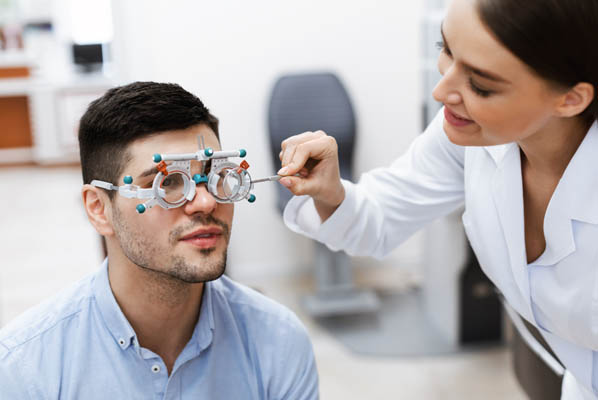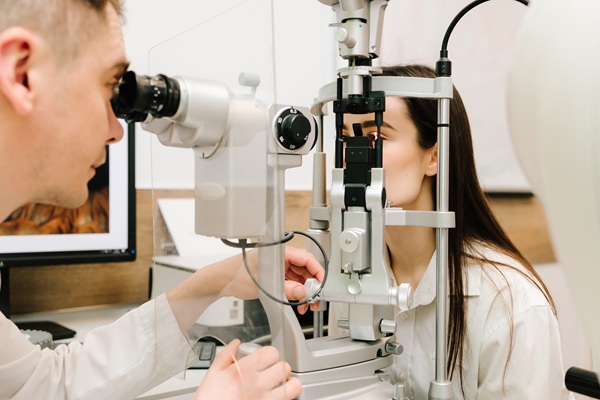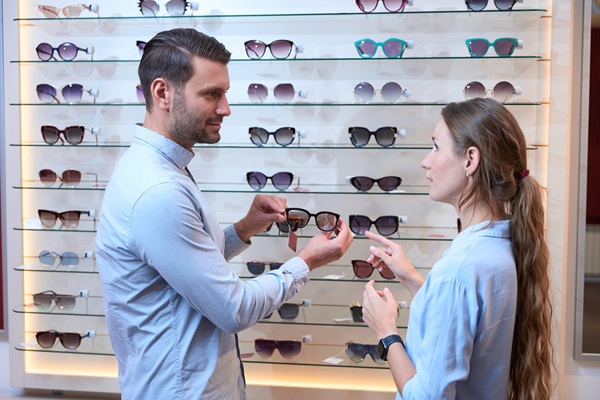How Often Should I See an Optometrist

To keep your eyes in good shape, it is important to see an optometrist regularly. Occasional eye and vision appointments are a critical part of preventive health care. Some eye and vision problems do not have any symptoms and signs so you may not be aware a problem exists. Seeing your eye doctor can help detect problems early and treat them. If you are not sure when to schedule your next eye exam, read on to find out some factors you should consider.
Eye examinations
Getting regular eye care is a vital component of maintaining healthy vision. Patients can benefit from having their eyes examined every one to two years. But depending on several factors a person may need to see an optometrist more often. These include the age of a person and medical history. Diagnosing a problem early can ensure it is treated in good time. This reduces the risk of problems becoming worse and harder to treat later on.
Age
The prevalence of vision disorders and ocular diseases increases with age. People under 40 years of age usually develop vision problems because of eye injuries or refractive errors. The prevalence of eye diseases in young adults is relatively low. But many problems can initially develop without symptoms or signs. Glaucoma can start appearing in this age group. Young adults should see optometrists every two years.
For people aged 40 through 64 years of age, their eyes should be examined at least every two years. Individuals in this age group are at a greater risk of developing eye diseases such as cataracts and glaucoma. People aged 65 and older should get a complete eye examination annually. People in this group are highly likely to develop problems because of their age. Regular visits will help them to maintain good eyesight.
At-risk patients
People who notice and experience symptoms and signs of problems should seek help as soon as any changes occur. Some symptoms that a person should watch out for are blurry vision, the presence of many floaters and light sensitivity, to name but a few. Other symptoms include seeing bright flashes and difficulty seeing at night. These symptoms may be indicators of eye and vision problems. A person with a family history of eye diseases should also see an optometrist frequently.
Systematic conditions can affect a person’s vision. The frequency of examinations can vary because of a patient’s condition. People with conditions such as diabetes and hypertension should be monitored regularly. These conditions increase the chances of developing eye and vision problems. Particular prescription and nonprescription drugs can also harm or affect the eyes.
Schedule your next appointment with your optometrist
Comprehensive eye and vision examinations can help you maintain optimal eye health. The prevalence of some problems is linked to age, particular conditions, race/ethnicity and gender. Regular visits can help in the early diagnosis and treatment of eye and vision disorders. If you are still wondering how often your eyes should be examined, contact your optometrist today.
Request an appointment here: https://brighteyesny.com or call Bright Eyes Optometry at (914) 730-9574 for an appointment in our New Rochelle office.
Check out what others are saying about our dental services on Yelp: Optometrist in New Rochelle, NY.
Recent Posts
Ophthalmologist and optometrists are two of the main eye care professionals. Both play an important part in helping you maintain the health and function of your eyes. However, while each type of eye doctor provides vision care, knowing the care you need can be confusing. Choosing the appropriate eye care provider depends on individual needs,…
Sunglasses have become a part of many people's wardrobes; however, they are also a great tool for protecting the eyes. Along with playing a large role in our daily lives, eyes are also sensitive to many things—sunlight being one of them. It is easy for one's eyes to sustain damage from direct sunlight exposure. Thankfully,…
A comprehensive eye exam does more than assess vision; it can also reveal early signs of various health conditions. Many systemic diseases affect the eyes before other symptoms appear, making regular exams essential to overall health care. Optometrists use advanced diagnostic techniques to detect conditions beyond vision problems, allowing for early intervention and treatment.Routine eye…
Cataracts are a common vision impairment that primarily affects older individuals, leading to clouded visions and, in some cases, blindness. Fortunately, cataract treatment provides effective solutions to restore sight and improve people's overall quality of life. Optometrists can use these advanced methods to improve precision, reduce recovery time, and lead to better treatment outcomes.Cataracts develop…


